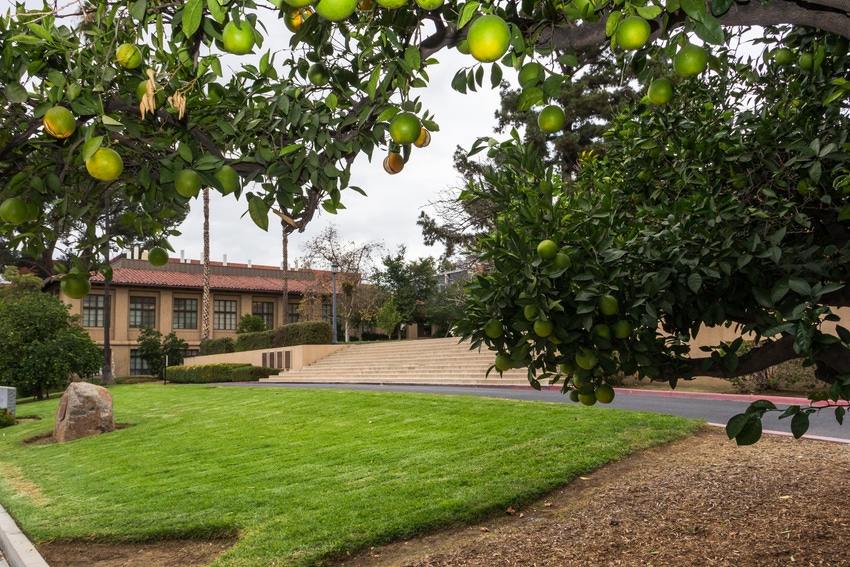
California officials confirmed the discovery of Huanglongbing (HLB) in a grapefruit tree about two miles northwest of UC Riverside, the birthplace of California citrus research and home to Citrus Clonal Protection Program (CCPP).
The discovery, confirmed in plant material collected July 10, marks the first discovery of HLB in Riverside County and a potential concern for citrus research at the Land Grant College.
According to Victoria Hornbaker, branch chief, integrated pest control for the California Department of Food and Agriculture (CDFA), state and federal officials must still determine potential impacts a citrus disease quarantine will have on the university and its citrus research programs.
CCPP Director Georgios Vidalakis said the university has thought ahead to develop protocols for the day when HLB would be found on or near the campus, sparking a new and more restrictive quarantine.
For several years, the campus has been included in a quarantine for the Asian citrus psyllid (ACP), the tiny insect that vectors the bacterial disease in citrus. Vidalakis says the university has worked with regulatory officials to be in compliance with ACP quarantine restrictions and will continue to do so under the more restrictive conditions of an HLB quarantine.
Current HLB quarantine restrictions prohibit the sale of all host nursery stock – in this case all plants in the citrus family – and the movement of those plants and fruit within a five-mile radius of the find. These regulations apply equally to residents and commercial operations.
The university’s citrus farm will likely be included in the five-mile quarantine zone, which has not yet been formalized.
Western Farm Press will continue to update this issue as information becomes available.
About the Author(s)
You May Also Like






